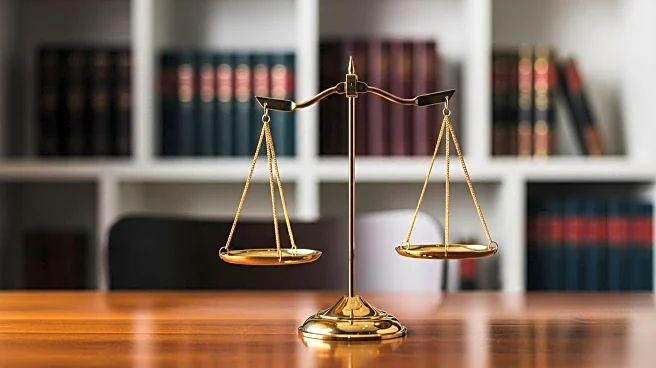What's Happening?
A law firm representing plaintiffs in a high-profile case at the Supreme Court of Ghana has withdrawn its legal services, citing a breach of internal office policy. The case, filed under Writ No J1/30/2025, was brought by three plaintiffs, including Rockson-Nelson Dafeamekpor, Member of Parliament for South Dayi, and the Ghana Law Society. The defendants are the Attorney General and the Ghana Bar Association (GBA). The plaintiffs argue that the GBA, a private voluntary association, should not be treated as the sole representative body for lawyers in Ghana. They seek several declarations, including a reinterpretation of references to the GBA in the Constitution and Legal Profession Act, asserting that the current recognition of the GBA violates constitutional rights to equality and freedom of association.
Why It's Important?
The withdrawal of legal representation in this case highlights the complexities and challenges within Ghana's legal framework regarding the representation of legal professionals. The outcome of this case could have significant implications for the legal profession in Ghana, potentially altering the structure and recognition of legal associations. If the plaintiffs succeed, it could lead to a more inclusive representation of lawyers, impacting how legal services are organized and delivered in the country. This case also underscores the importance of constitutional interpretation in shaping legal and professional standards.
What's Next?
The Supreme Court of Ghana will need to address the plaintiffs' claims and determine whether the current status of the GBA is constitutionally valid. The decision could prompt legislative changes or reforms in the legal profession, affecting how legal associations are recognized and operate. Stakeholders, including other legal associations and the government, may need to engage in discussions to address the implications of the court's decision and ensure compliance with constitutional principles.
Beyond the Headlines
This case raises broader questions about the role of voluntary associations in representing professional groups and the balance between private organization and public recognition. It also touches on issues of equality and freedom of association, which are fundamental rights in democratic societies. The legal community in Ghana may need to consider how to foster inclusivity and representation while maintaining professional standards and integrity.











